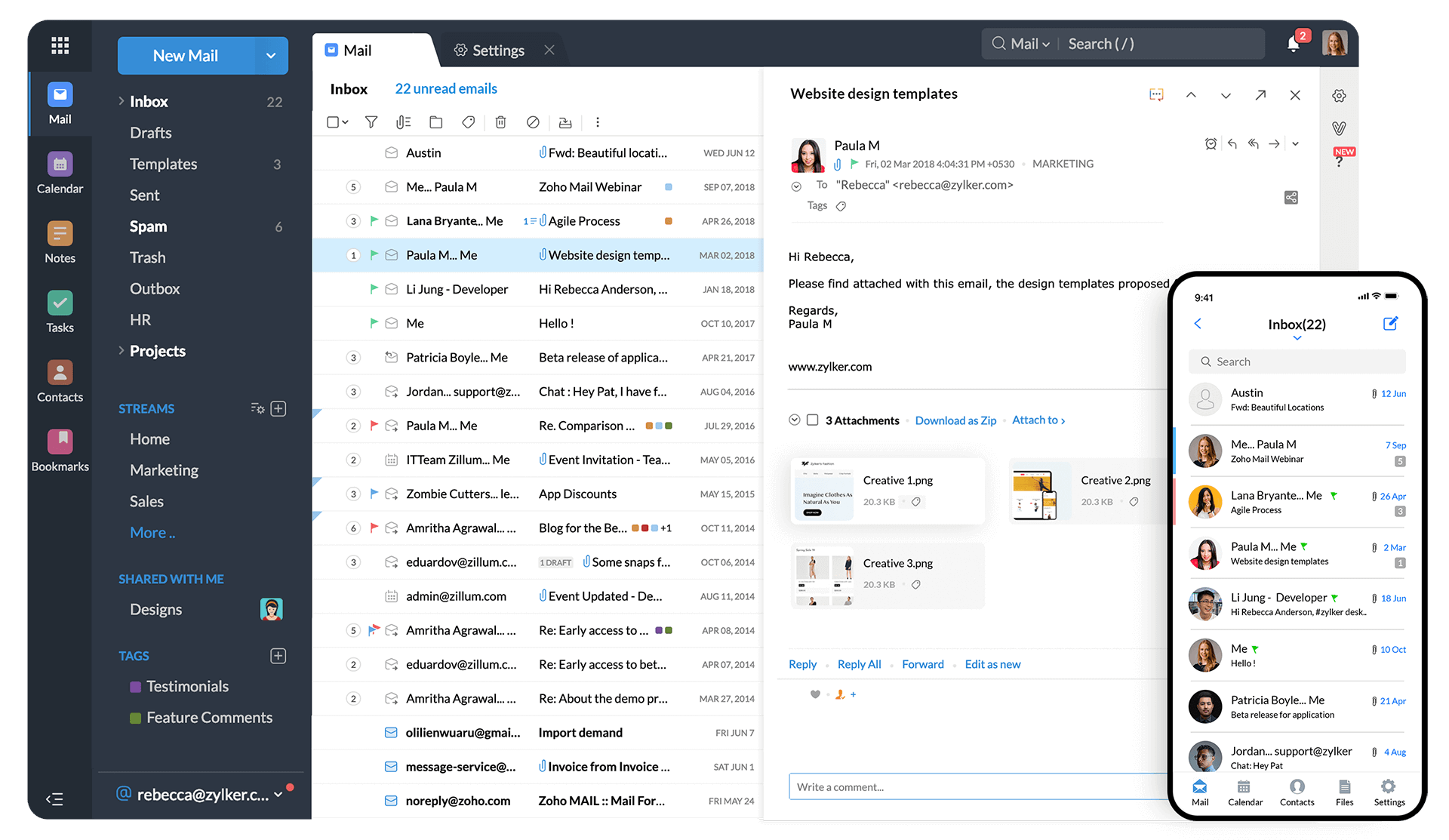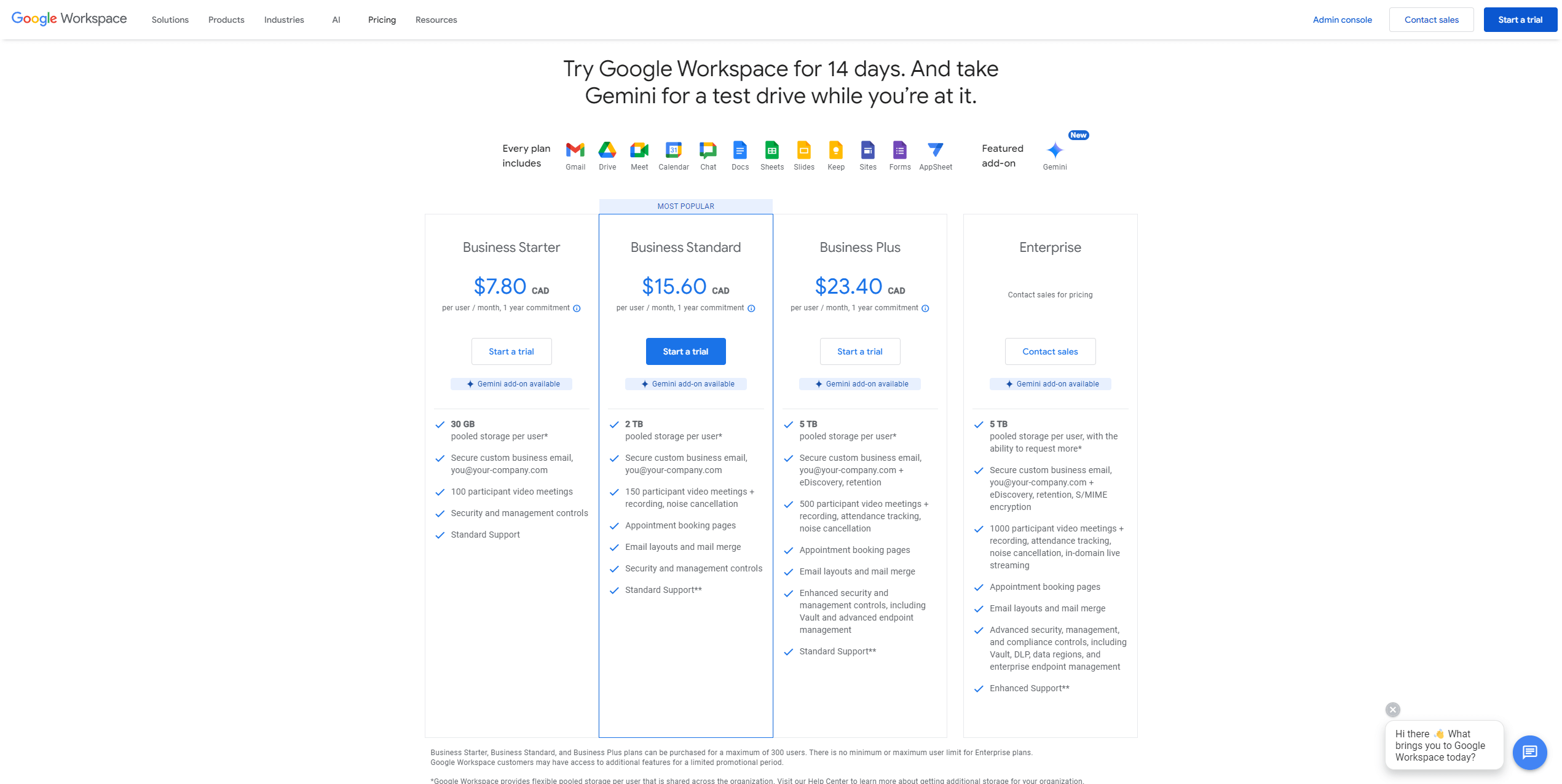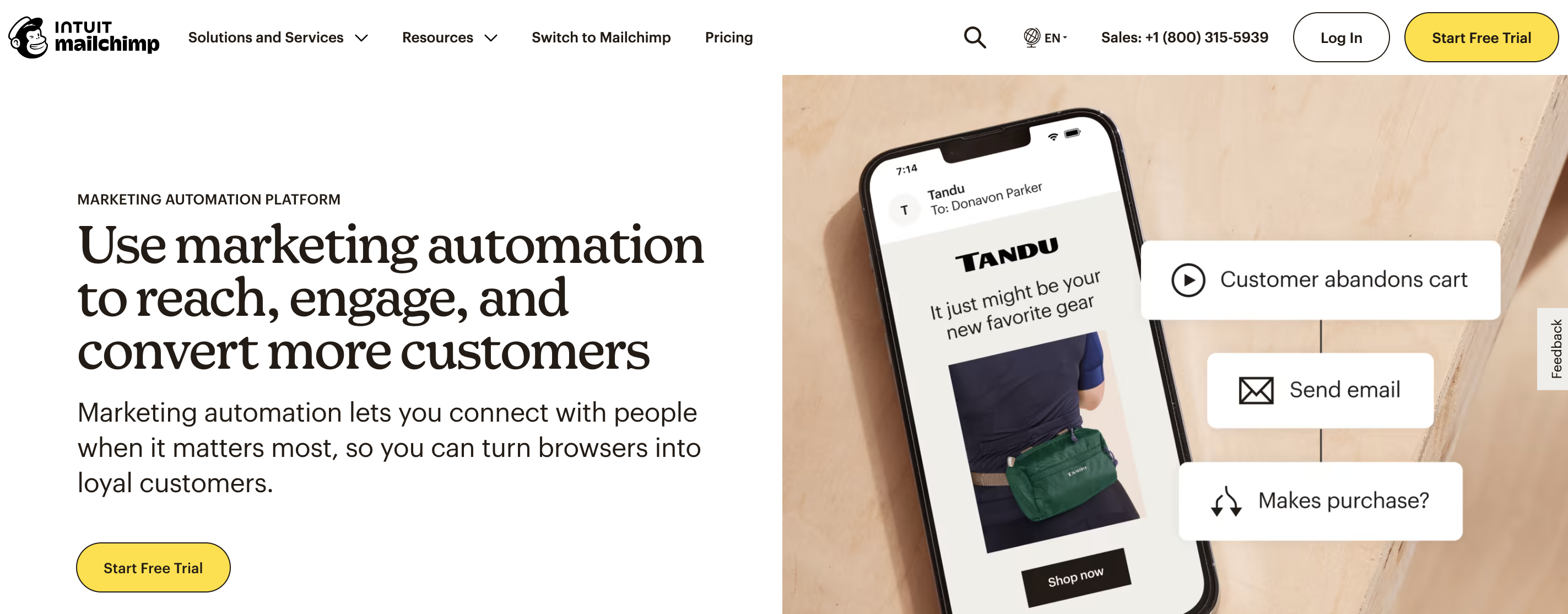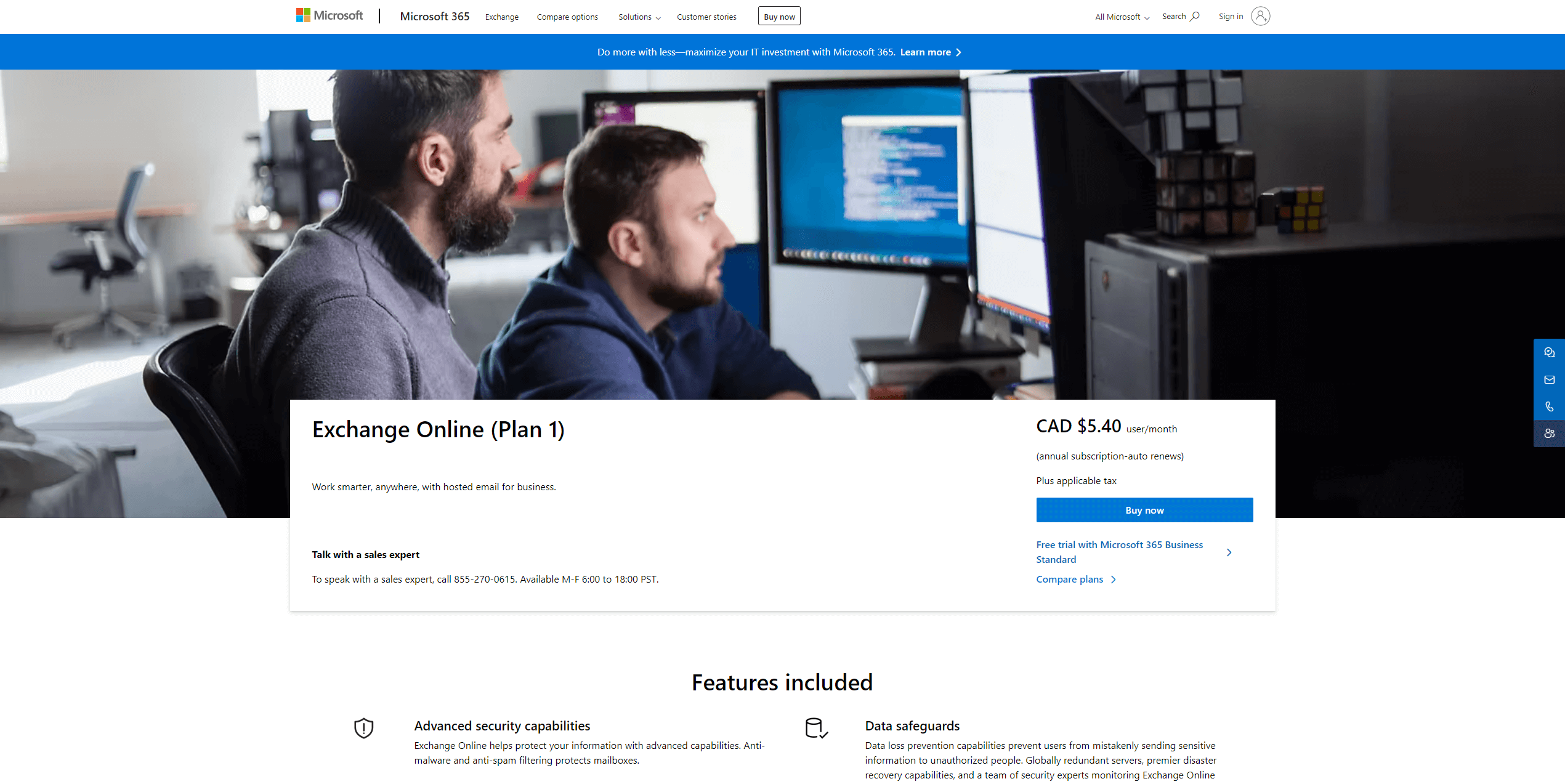Email Hosting 101: Everything You Need to Know For Your HVAC Business
The #1 tip for HVAC email hosting is to choose an email hosting provider that prioritizes security features like encryption and multi-factor authentication, paired with reliable uptime and 24/7 support, to ensure seamless and secure communication for your HVAC business. Effective email hosting is a foundational element for any HVAC business aiming to maintain seamless communication and operational efficiency. By carefully selecting a provider that offers secure, feature-rich, and scalable solutions, you can ensure that your business stays connected and responsive to client needs. Integrating your email system with other tools, prioritizing security, and managing costs wisely will further enhance the value of your email hosting service. With reliable customer support and productivity-enhancing tools, your HVAC business can thrive in a competitive market, delivering exceptional service and building strong client relationships through efficient communication.
Click on each corresponding link to jump ahead:
- Choosing the Right Email Hosting Provider
- Features to Look for in Email Hosting
- Scalability and Flexibility
- Integration with Other Tools
- Security Measures
- Cost Considerations
- Customer Support and Reliability
- Managing Email Accounts for Your Team
- Enhancing Productivity with Email Tools
- What Email Host Is Best for an HVAC Company
- What Is Meant by the Tern Email Hosting
- What Is the Difference Between Email Hosting and Domain Hosting
- What Is the Difference Between Email Hosting and an Email Marketing Platform
If you are looking for help in choosing an email host for your HVAC company, contact Profitworks.
1) Choosing the Right Email Hosting Provider

Source: Google Workspace
Selecting an appropriate email hosting provider is the first step in establishing a robust communication system for your HVAC business. The provider you choose should align with your business size, budget, and specific requirements. Look for providers that offer secure email hosting solutions, ensuring that your communications are protected against unauthorized access and cyber threats. Evaluate the reputation of the provider by reading reviews and considering their track record in the industry. Assess their uptime guarantees to ensure your email service remains accessible when you need it most.
2) Features to Look for in Email Hosting

Source: Zoho Mail
When choosing an email hosting service for your HVAC company, focus on features that align with the demands of your business operations. Ample storage space is critical for handling large attachments such as service reports, maintenance agreements, and high-resolution photos of installations or repairs. Robust spam and malware protection is equally important to ensure your communications remain secure, protecting sensitive customer data and internal discussions from cyber threats.
For HVAC businesses that juggle multiple service calls and projects daily, advanced search capabilities are invaluable. They allow you to quickly locate important emails, whether you're tracking down a customer's request or reviewing supplier communications. Features like customizable filters and folders can help you keep your inbox organized, making it easier to prioritize urgent matters such as emergency service requests.
Integration with calendaring and task management tools can further enhance productivity by streamlining scheduling and team coordination. For instance, syncing your email with a shared calendar can help dispatchers efficiently allocate service technicians and keep everyone on the same page. Similarly, task management tools integrated into your email platform can simplify tracking job progress, ensuring timely completion of HVAC installations and repairs.
By prioritizing these features, your email hosting provider can become a critical tool in managing the complex communication needs of your HVAC company, helping to improve efficiency and customer satisfaction.
3) Scalability and Flexibility

Source: Dreamhost
As your HVAC business grows, your email hosting needs will likely change. Selecting a provider with scalability ensures your communication system can grow with you, accommodating an increasing number of technicians, office staff, and service locations. Look for providers offering flexible plans that make it easy to add or remove users as your team expands or shifts, minimizing disruptions to your operations.
If your business operates under multiple brands or offers distinct services, check whether the provider supports multiple domains, allowing you to maintain professional email addresses for each segment of your business. This can help streamline communication and reinforce your branding across different service lines, such as residential HVAC, commercial systems, or energy efficiency consultations.
Flexibility is equally vital for a field-intensive industry like HVAC. Choose a provider that ensures seamless access to emails across various devices, including smartphones, tablets, and laptops. This feature enables your team to stay connected whether they're in the office scheduling appointments, on a job site responding to customer inquiries, or working remotely on project management tasks. Reliable mobile access ensures that your technicians and staff can quickly address customer needs and coordinate effectively, regardless of location.
By prioritizing scalability and flexibility, your email hosting solution will not only meet your current needs but also support your HVAC business as it evolves, keeping communication smooth and efficient at every stage of growth.
4) Integration with Other Tools
Efficient operations in the HVAC industry rely on the seamless integration of tools and software to streamline processes and improve productivity. Your email hosting service should work seamlessly with the applications you already use, such as customer relationship management (CRM) systems, scheduling software, accounting tools, and any platforms supporting your HVAC marketing strategy.
Integration with a CRM system, for example, allows your team to track customer interactions directly from email, ensuring personalized service and quicker responses to inquiries. Connecting your email with scheduling software can simplify booking and dispatching technicians, ensuring efficient route planning and reduced downtime.
For HVAC businesses, integrating project management tools with your email system is particularly valuable. This setup enables you to easily track service requests, manage work orders, and coordinate job schedules. Technicians can receive updates or customer details directly in their inboxes, while office staff can monitor job progress and update records without switching between platforms.
Additionally, linking your email to accounting tools can facilitate smoother invoicing and payment tracking, reducing administrative burdens. For marketing efforts, integration with email marketing platforms supports targeted campaigns, helping you nurture leads, promote seasonal services, and build customer loyalty.
By ensuring your email hosting provider supports these integrations, you create a connected ecosystem that minimizes manual data entry, reduces errors, and improves communication, making your HVAC business more efficient and customer-focused.
5) Security Measures
A reputable email hosting provider is essential for protecting your HVAC business communications. Security measures like encryption of emails in transit and at rest ensure that sensitive customer and business information—such as service agreements, invoices, and scheduling details—remains secure from cyber threats. Multi-factor authentication (MFA) prevents unauthorized access, adding an extra layer of protection for your team’s accounts.
HVAC companies handle critical customer data, making regular security audits vital to identify vulnerabilities before they become issues. Providers offering data backup and recovery options can safeguard your emails from accidental deletion or cyberattacks, ensuring continuity in your operations. For added peace of mind, select an email hosting provider that complies with industry security standards and has a strong reputation for protecting client data.
6) Cost Considerations

Source: Google Workspace
Budget plays a key role in selecting an email hosting service for your HVAC business, but it’s important to evaluate the cost in relation to the features, reliability, and scalability offered. For example, tiered plans allow smaller HVAC companies to start with basic services and upgrade as they grow, while larger operations may require plans with more storage, advanced security, or integration with dispatch and CRM tools.
Keep in mind hidden fees for services like extra storage, priority customer support, or premium security features. While cheaper plans may seem appealing, investing in a high-quality email hosting service often pays off by improving productivity, minimizing downtime, and safeguarding your business’s reputation. Ultimately, the right email hosting service should deliver reliable performance and scalability, aligning with the specific demands of the HVAC industry.
7) Customer Support and Reliability
Reliable customer support is essential for HVAC companies that depend on consistent email communication for scheduling, invoicing, and customer service. Choose an email hosting provider offering 24/7 support via phone, email, and live chat. HVAC businesses often operate outside traditional hours, especially during emergencies, making around-the-clock support crucial for resolving technical issues quickly.
Evaluate the provider’s uptime guarantees—look for at least 99.9% uptime to ensure uninterrupted email service. Infrastructure robustness, including redundant data centers and disaster recovery plans, adds another layer of reliability. Responsive and knowledgeable support teams can minimize disruptions, helping your HVAC company maintain smooth operations during even the busiest seasons.
8) Managing Email Accounts for Your Team
Organized email management is key to effective communication in an HVAC business. Establish a professional and standardized email structure, such as This email address is being protected from spambots. You need JavaScript enabled to view it., to ensure clarity and consistency for customers and partners. Create role-based accounts like This email address is being protected from spambots. You need JavaScript enabled to view it. or This email address is being protected from spambots. You need JavaScript enabled to view it. to direct inquiries to the appropriate departments, streamlining internal workflows.
To enhance security and organization, implement email usage policies covering password management, acceptable use, and data storage guidelines. Regularly updating these policies helps address evolving cybersecurity threats. Providing training for your team on email best practices, such as avoiding phishing scams and using email tools effectively, can reduce errors and strengthen your overall communication strategy.
9) Enhancing Productivity with Email Tools

Source: Mailchimp
Email hosting services often come with productivity-enhancing tools tailored to streamline HVAC workflows. Shared calendars and task lists improve team coordination, while collaborative document editing ensures seamless communication across projects. For example, technicians can update job progress or attach photos directly to emails, keeping dispatchers and office staff in the loop.
Automated responses and scheduling features save time by ensuring that customer inquiries are promptly acknowledged, even during peak seasons. Mobile device integration allows technicians and managers to access important information while on the go, helping them stay connected to schedules, job updates, and client details.
Leverage email analytics and reporting tools to gain insights into team performance and communication patterns. Metrics like response times and email volumes can highlight areas for improvement, allowing your HVAC business to refine workflows and enhance customer satisfaction.
10) What Email Host Is Best for an HVAC Company

Source: Microsoft 365
Choosing the best email host for your HVAC business depends on your specific needs, including security, scalability, and integration capabilities. Industry-leading providers like Google Workspace, Microsoft 365, and Zoho Mail are popular choices due to their robust features and reliability. Google Workspace offers user-friendly tools, excellent mobile access, and seamless integration with other Google services, while Microsoft 365 provides powerful productivity tools like Outlook and Teams. Zoho Mail is ideal for smaller HVAC companies looking for budget-friendly options with essential features.
When selecting a host, prioritize security features like spam filters and encryption to protect sensitive customer data. Look for scalability to ensure the system can grow as your team expands. Finally, ensure the provider supports integration with tools critical to your operations, such as scheduling software or CRM systems, to streamline workflows and enhance communication across your team.
11) What Is Meant by the Tern Email Hosting
Email hosting refers to a service that manages and stores your email communications on a dedicated server, allowing your HVAC business to use a professional, custom email address (e.g., This email address is being protected from spambots. You need JavaScript enabled to view it.). Unlike free email providers, email hosting ensures a higher level of reliability, security, and customization, which are essential for businesses managing sensitive customer communications and large volumes of emails.
Email hosting services often include features like advanced spam filtering, secure encryption, and robust storage options, making them a valuable asset for HVAC companies. These services also enhance your professional image by ensuring your email address aligns with your brand, building trust with customers and partners.
12) What Is the Difference Between Email Hosting and Domain Hosting
Email hosting and domain hosting serve different purposes, though they can be related. Domain hosting is the service that manages your website's domain name (e.g., www.yourhvaccompany.com) and connects it to your website's files, making your site accessible on the internet.
Email hosting, on the other hand, specifically manages email accounts associated with your domain name (e.g., This email address is being protected from spambots. You need JavaScript enabled to view it.). While some providers offer both services in a single package, they are distinct. Email hosting focuses on secure and efficient email communication, whereas domain hosting ensures your website is live and functional.
For HVAC businesses, using email hosting linked to your domain hosting creates a cohesive and professional online presence, boosting credibility with customers.
13) What Is the Difference Between Email Hosting and an Email Marketing Platform
Email hosting is a service designed for regular communication, such as sending and receiving emails, managing team correspondence, and storing business-related messages. It provides features like secure inboxes, storage, and integration with scheduling and CRM tools.
An email marketing platform, like Mailchimp or Constant Contact, is specifically built for mass email campaigns. These platforms are ideal for HVAC businesses looking to run promotional campaigns, send newsletters, or engage in lead nurturing. They include tools for creating visually appealing emails, segmenting your audience, and tracking campaign performance.
While email hosting is essential for day-to-day operations and team communications, an email marketing platform is a strategic tool for customer engagement and growing your HVAC business through targeted outreach. Many companies use both services in tandem to meet their operational and marketing needs effectively.
